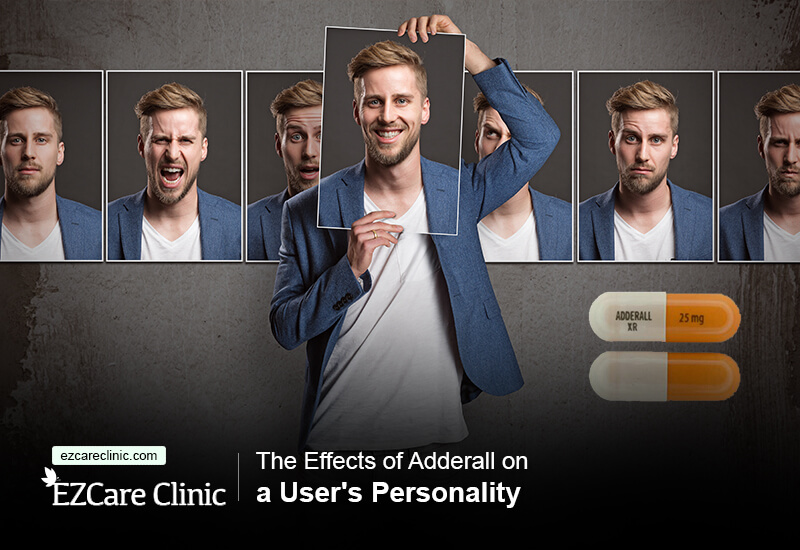Highlights
- Often, patients may have both ADHD and Tourette syndrome as coexisting conditions; 50% of those with Tourette’s have ADHD, and 10% of individuals with ADHD will develop Tourette’s.
- ADHD medication in the stimulant class may exacerbate tics.
- Tic disorders may be classified as temporary, lasting less than a year; or chronic if present for over 12 months.
- Behavioral interventions, such as functional-based treatments, relaxation, and habit reversal therapy, are as successful as medication in reducing tics.
You’ve been feeling socially awkward recently. More than one person has asked you if your eyes are itchy or if you have a sore neck; you now realize it’s because you are repeatedly blinking and twisting your head. You’re wondering if it could be related to your ADHD diagnosis and are looking to learn more about what you believe might be tics. This article will give you all the necessary information to answer this question.
What Are Tics?
Tics are usually described as unexpected, fast, repeated involuntary movements (motor tics) or sounds (vocal tics) that are not task-specific. However, certain scientific articles think they are
Examples of motor tics are blinking or jerking, and snorting or shouting are vocal. Some people have only motor tics, others only make sounds, and sometimes, both tic types are present. Often, tics are short-lived, while some may span years.
Causes of Tics
The only true causes are tic disorders, which are classified by tic type (motor or vocal) and how long they are present.
Tic Disorders
Provisional Tic Disorder
This type of tic disorder is most likely not what you are experiencing, as it is rare in adults. According to Massachusetts General Hospital, 5 to 24% of school-age children will experience tics lasting at least one month to a year, and then tics disappear without treatment. These temporary or transient tics fall into the provisional tic disorder category and are often present during stressful life events.
Chronic Tic Disorder
On the other hand, tics that last longer than twelve months are called chronic tic disorders and might stick around into adulthood. This chronic class can be further divided into motor OR vocal tic disorders; one or more movement OR sound tics are present, NEVER both.
Tourette Syndrome
Finally, Tourette syndrome gets a special mention. Many people associate tics with Tourette syndrome, and for good reason. It is a common cause of chronic tics, affecting 1 in 100 children under 18. They display
It is important for you as an adult to understand and be able to recognize tics. Most individuals with Tourette’s have a feeling the tic is about to happen, followed by relief after the fact. If you have Tourette syndrome, your child might inherit the disorder; half of people with Tourette’s disorder have a family history, although the exact genetic factors are still to be discovered.

Conditions That Mimic Tic Disorders
Some medical conditions may look like tic disorders. Brain or neurological disorders, for example, epilepsy and mental health disorders like OCD, fall into this category.
Obsessive-compulsive Disorder (OCD)
Can ADHD Cause Tics?
Let’s start with a quick recap of what ADHD is. It is a mental health condition characterized by three main symptoms:
- Low attention
- High energy
- High distractibility
Therefore, people with ADHD are often easily distracted, impulsive, and make careless mistakes. Low concentration and hyperactivity may result in repetitive behaviors such as unconscious fidgeting or deliberate stimming (self-stimulatory behaviors). Both these behavior patterns happen to decrease anxiety, control unwanted feelings, or increase concentration and might be confused with tics, which have nothing to do with focus or emotions.
Examples of ADHD stimming that might resemble tics are arm flapping, blinking, and sniffing.
So, where do tics come into an ADHD diagnosis? The leading ‘cause’ of tics in ADHD is, in fact, Tourette syndrome or other chronic tic disorders.
- Half of the patients with Tourette’s syndrome have co-occurring ADHD, and
- 1 in 10 people with ADHD will develop Tourette’s.
So, there are no unique “ADHD tics” since they are not a symptom of ADHD but indicate a possible co-existing tic disorder.
Can ADHD Medication Trigger Tics?
Unfortunately, yes, stimulant medications, which are very effective at controlling ADHD symptoms, might be problematic if there is a co-existing tic disorder. These medications can start or worsen tics in people prone to them; muscle twitching, for example, is a
ADHD brains tend to have a
Stimulant ADHD medication, like methylphenidate and amphetamines,
If this is happening, your healthcare provider may recommend other ADHD treatment options, including non-stimulant medications.
Types of Tics
Below are tic symptoms that may be present in ADHD if you have a co-existing tic disorder.
- Blinking
- Jerking
- Sniffing
- Picking
- Grimacing
- Arm flapping
Tics involving sound:
- Making animal noises
- Sniffing, coughing, or snorting
- Shouting
- Blurting out dirty words or remarks
- Repeating one’s own words
- Repeating others words
If you have ADHD and are experiencing any of these tic behaviors, you need to consult a healthcare professional to help you with a therapy plan.
Treatments for ADHD and Tics
Early consultation at the first sign of tics may prevent them from interfering with your daily life; depending on how severe the tics are, you may be recommended treatment options listed below for treating chronic tics as suggested by the Tourette Association of America.
Education
If tics draw the attention of others or interfere with work:
- Get screened for ADHD, anxiety disorders, and OCD.
- Teach family, teachers, and peers about tics and involve them in treatment strategies.
- A helpful resource is the HBO documentary I Have Tourette’s But Tourette’s Doesn’t Have Me.

Comprehensive Behavioral Intervention Therapy (CBIT)
Habit Reversal Therapy:
- Learn to recognize tics and the urge that comes before the tic.
- When you can recognize tics and their warnings, learn to perform another mismatched behavior.
- Ensure social support; family can help recognize tics, remind you about them, and reinforce backup behaviors to break the tic habit.
Functional-based Treatment:
- Assess situations and emotions that worsen tics.
- Change daily routines to avoid these situations or emotions and reduce tics.
Relaxation Therapy:
- Anxiety, stress, and muscle tension can trigger tics; therefore, you can manage tics when you relax and reduce stress.
- Deep breathing techniques and focused muscle relaxation can help achieve this.
CBIT
Your doctor may recommend medication specifically targeting the tics in the following situations:
- Multiple tics bother you
- Your tics result in injury
- CBIT has failed
The Way Forward for ADHD and Tics
In summary, if you have ADHD and tics, it is important to consult a healthcare provider experienced in treating ADHD. This helps optimize your treatment plan for managing tics and ensure better functioning and improved quality of life. Book your appointment for online ADHD treatment and see an experienced healthcare provider in 24 hours.













